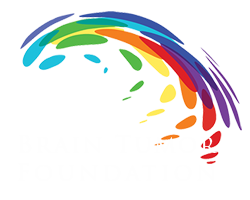IRB & research
An Institutional Review Board (IRB) is a committee established to review and approve research involving human subjects with the purpose of ensuring that all human subject research be conducted in accordance with all federal, institutional, and ethical guidelines.
We must keep up the momentum – providing free brain scans to more and more places, reaching more and more people and communities, continuing to search for more successful paths to treatment, and, our greatest hope to some day finding a cure.
BTF’s Research Initiative
The Brain Tumor Foundation research is focused on the efficacy of early detection of brain tumors and other brain diseases.
BTF’s earlier pilot programs culminated in a national, Institutional Review Board (IRB) approved investigation of early detection initially in collaboration with a multidisciplinary research team at Columbia University Medical Center I New York-Presbyterian and the Mailman School for Public Health. The study’s principal investigators were Dr. Alfred I. Neugut, Myron M. Studner Professor of Cancer Research and Professor of Medicine and Epidemiology, Columbia University and Dr. Grace Hillyer, Assistant Professor Epidemiology at the Columbia University Medical Center, Director, Executive MS in Epidemiology.
The next phase of the IRB is now in partnership with Weill Cornell Medicine I New York-Presbyterian. The study is now being led by Dr. Phillip E. Stieg, Chairman and Neurosurgeon-in-Chief of New York-Presbyterian I Weill Cornell Medicine Brain and Spine Center; John Keenam Park, MD, PhD, Chief of the Department of Neurological Surgery, New York-Presbyterian Medical Group Queens, faculty member of neurological surgery at Weill Cornell Medicine and at the Weill Cornell Brain and Spine Center; Dr. Babacar Cisse , Assistant Professor of Neurological Surgery, Leon Levy Research Fellow, Feil Family Brain and Mind Research Institute; and Dr. Apostolos John Tsiouris, Associate Professor of Clinical Radiology at Weill Cornell Medicine and Associate Attending Radiologist at the New York-Presbyterian Hospital I Weill Cornell Campus.
BTF expects to screen a total of 7,000 – 10,000 individuals. This humanitarian project has far-reaching implications with immediate practical impact. The results will help medicine to use its resources more efficiently and improve standards of care. BTF’s detection effort will be using a newly developed and FDA approved portable MRI machine which will travel nationally. It will also enable the study to incorporate a special focus on brain tumor hot spots.
Early detection of breast, colorectal and lung cancer as well as melanoma is a given of public health practice, a standard of medical care. Study after study has shown that screenings can save live, ensure more effective treatment with fewer side effects and reduce medical costs. No study has yet been done, however, on whether early detection can effectively screen brain abnormalities that can lead to critical diagnosis – tumors, silent strokes, Alzheimer’s and Multiple sclerosis among them.
The Brain Tumor Foundation together with the department of Neurological Surgery at Weill Cornell Medicine are undertaking this pioneering study as a humanitarian effort to save lives. This research will help the field of medicine understand how to use its resources — low cost MRI scans — most effectively. It will have immediate, practical use.
This will be the first study to assess the efficacy of brain tumors and silent strokes. It will also correlate brain tumor diagnosis with epidemiological factors such as genetic considerations and environmental elements. As the study focuses on areas where brain tumors may be more prevalent, it will explore whether brain tumors are in fact more widespread in the population than previously thought.
The Early Detection campaign will also be looking at the prevalence of silent strokes in the population — a leading indicator of major strokes. As we segment results by our subjects’ age and personal history, we may open new lines of research into risk factors for this brain-related, cardiovascular disease.
Because our scans will pick up degrees of brain abnormalities, we will also be able to help with the initial screenings for other daunting brain diseases.
The Road to Early Detection campaign has become more cost effective and efficient through a newly developed portable MRI machine produced by Hyperfine. The new technology enables us to screen quickly, and its additional portability will expand our reach and accessibility.
The study of Early Detection will help to shape public health policy. The project seeks to understand the prevalence of previously undetected abnormalities. It will also look at the distribution of brain abnormalities by age, sex, ethnic background, geography and medical history. We will also be looking for suggestions of environmental risk factors.
This study will help physicians and public health policy experts to weigh the cost of added value of early detection — especially when risk factor are noted — against the costs of late-stage disease treatment. For both brain tumors and silent strokes, the findings will help physicians to better evaluate when screenings should be considered part of standard of care.
For some patients, early detection can be a lifesaver. For others, it can significantly prolong life and improve quality of life.
About 80% of brain cancers represent metastases from primary tumors elsewhere. Put another way, this represents up to 40% of breast, lung, and melanoma cancers going to the brain. More than half of those with metastatic brain tumors will have more than one. For secondary brain tumors in patients with limited systemic diseases, new and effective treatments can control even multiple metastatic tumors. However, early detection is key.
Depending on the type of primary brain tumor — whether it is malignant or benign and where the tumor is located — early intervention can be vital in prolonging life. This is especially true for early state gliomas and for meningiomas. In early cases of brain cancer, cells are still functioning. Intervention at this stage can ensure that the patient stabilizes and does not deteriorate.
In later stages, as the cancer progresses and spreads, malignant cells cannot be removed without causing severe incapacitation or death. Malignant brain tumors, especially glioblastomas, are mostly fatal when discovered at late stages. Once cancerous cells have infiltrated other parts of the brain, surgery can slow down the disease but cannot stop it.
Yet even benign tumors — which continue to grow albeit more slowly than cancerous ones — can be dangerous. They press on parts of the brain that communicate with the body and can become malignant.
To read more about why further study is needed to determine the benefits of early detection of brain tumors, see the research paper published in The Oncologist and authored by Dr. Alfred Neugut, et al.
PROTOCOLS OF THE EARLY DETECTION STUDY:
Patients will register for a free MRI scan through BTF’s early detection program. This can be done online or by contacting BTF directly. Anyone who registers (between the ages of 18-85) for an MRI brain scan will be able to receive one. However, only volunteers who meet study inclusion criteria will be included in this study.
At the MRI mobile station, study volunteers will be met by the subject navigator. The navigator will collect vital data and determine the subject’s willingness and eligibility for the study. A technician navigator will direct volunteers to the MRI unit, guide them through the MRI process and operate the MRI machine.
When the researchers receive the subject data and the scans, they will first review abnormalities. When individual scans may indicate a possible medical issue, the researchers will contact the subjects’ own physicians. The effected subjects and their doctors will then discuss next steps, further tests and diagnoses.
As the scans and data are collected, the research team will construct statistical models to assess how brain abnormalities are related to genetic, demographic and environmental factors.
PROJECT DETAILS
The portable MRI unit by Hyperfine is a breakthrough in accessibility for MRI imaging. With this unit, we can move more quickly to reach more people and produce more scans.
Besides its compact design and location flexibility, the portable MRI unit plugs into a standard wall outlet and needs only 2 minutes to warm up and be scan-ready. Its system also detects and controls for high environmental electromagnetic interference, resulting in crisp, clear images. The magnet is safe; its field strength ensures low risk to staff and patients. Because the magnet is less confining, it is not frightening to those who suffer from claustrophobia. The open design offers subjects greater ease and comfort.
The MRI will be housed on a 38’ truck so that it can travel to locations across the country. The truck will give the subject navigator adequate work space and enable subjects to be interviewed in privacy.
The Hyperfine MRI is capable of ‘deep learning’ – a type of machine learning with artificial intelligence (AI) that imitates the way humans gain certain types of knowledge. Traditional computer models have linear algorithms. Deep learning is hierarchical. Enabling the computer to refine its algorithms by adding complexity and hierarchy as it continues to produce scans. This AI feature is key for understanding large amounts of data and for making predictions.
The new portable MRI is a technological breakthrough that makes low-cost scans possible and accessible especially in “real life” locations.

Call for a referral

Stay informed
Sign up for BTF news and events

Donate
Help us help others
©2021 Brain Tumor Foundation | 212.265.2401
